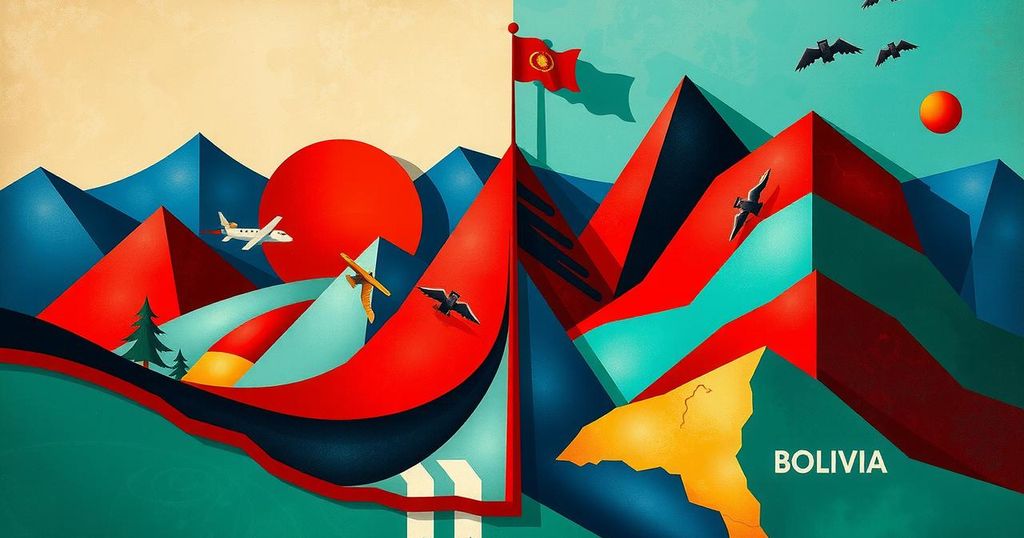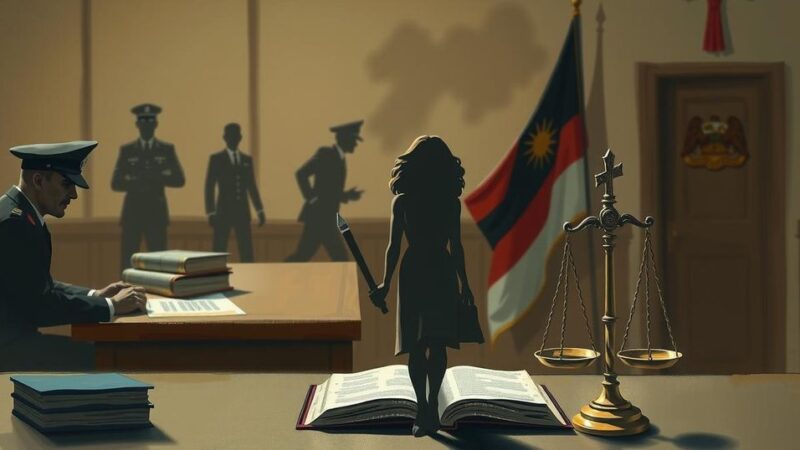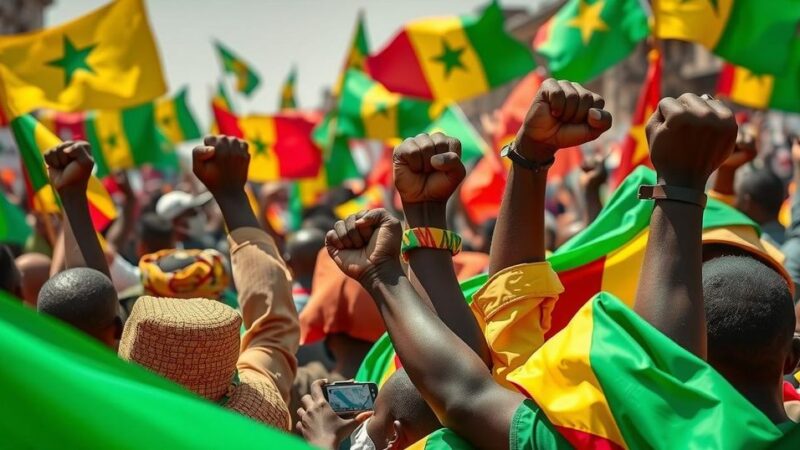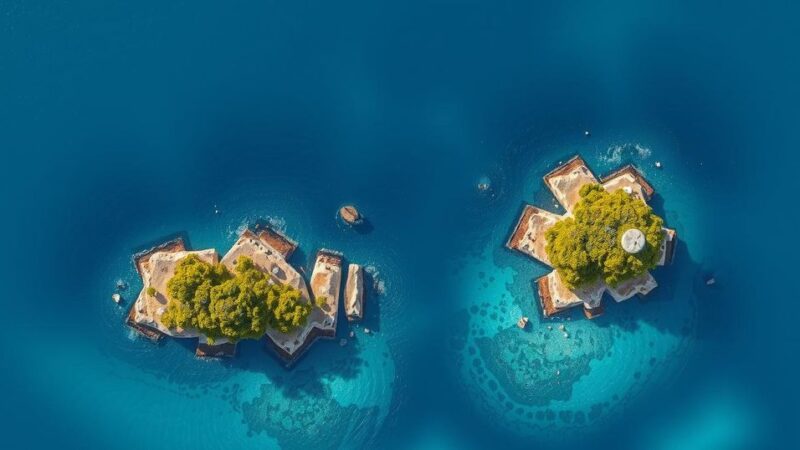Bolivia’s electoral court disqualified former President Evo Morales and suspended candidate Andrónico Rodríguez from the upcoming elections, prompting accusations of political manipulation by President Luis Arce’s government. Both leaders condemned the ruling, highlighting the threats to democracy and raising concerns of protests as tensions increase ahead of the elections.
In a significant political shake-up, Bolivia’s top electoral court announced on Tuesday the disqualification of former President Evo Morales from the presidential race. This decision also suspended another prominent leftist candidate, Andrónico Rodríguez, just months ahead of the August elections. Morales, who made history as the country’s first Indigenous president from 2006 until his controversial ouster in 2019, now faces a harsh challenge to his political aspirations.
Both Morales and Rodríguez sharply criticized the ruling, perceiving it as an assault on Bolivia’s already precarious democracy. They accused President Luis Arce’s government of manipulating the judiciary to stifle their candidacies. Morales, speaking on a local radio station, vocally denounced the situation, declaring, “We have been persecuted.” He expressed his concerns about the deepening political crisis and warned of possible protests if he is barred from running.
Rodríguez, the youthful Senate president at just 36, has captured the interest of voters frustrated with the current government’s failure to address Bolivia’s severe economic crisis. Following the decisions made by the electoral court, he called for demonstrations against what he labeled a “political decision” aimed at sidelining his campaign, stating on social media that “No ruling…can overrule the sovereign will of the people.”
The Supreme Electoral Court justified its decisions with narrowly defined legal arguments, coming just as the deadline for candidate registration was closing. The court’s actions underscore the ongoing power struggle between Morales and Arce, a conflict that has splintered Morales’ former political stronghold, the Movement Toward Socialism (MAS) party, leaving Morales to form his own party, “Evo Pueblo.”
In a notable shift, President Arce, seeing a sharp decline in his popularity, nominated his senior minister, Eduardo del Castillo, as the MAS candidate after previously stepping out of the race himself. Del Castillo, known for his hardline approach to protests against the government, has yet to rally the level of support that Morales and Rodríguez enjoy.
As political factions jockey for position, the opposition has been fragmented, lacking a cohesive candidate to effectively challenge the socialist regime. Published lists from the electoral court reveal that the opposition includes individuals like Samuel Doria Medina, a cement magnate with a troubled history of presidential elections, and Jorge “Tuto” Quiroga, a former president who pushed for pro-market initiatives.
Morales’ disqualification, while controversial, was anticipated due to the status of his newly formed party lacking official recognition, alongside other legal issues related to his candidacy. Additionally, a ruling from the Constitutional Court, which prohibits individuals from serving more than two presidential terms, adds further complexity to Morales’ return to power aspirations.
Political analysts suggest that the ongoing turmoil in Bolivia’s judiciary has weakened the country’s legal frameworks. “Arce benefitted from the rapid deterioration of the already weak justice system,” commented Kathryn Ledebur of the Andean Information Network. She criticized the lack of due process and deemed the upcoming elections as potentially chaotic and unpredictable.
Moreover, the court’s decision to suspend Rodríguez’s candidacy has drawn criticism even from the electoral court itself. Francisco Vargas, a member of the electoral body, warned that such legal maneuvers jeopardize the democratic process in Bolivia and called for vigilance from both national and international observers.
In summary, the recent decisions by Bolivia’s electoral court to disqualify former president Evo Morales and suspend key candidate Andrónico Rodríguez indicate rising political tensions in the nation. The legitimacy of these rulings has been questioned by both the candidates and analysts, suggesting potential ramifications for Bolivia’s democratic integrity ahead of the August elections. Reactions are intensifying as citizens and political figures alike assess the implications of these controversial legal battles for Bolivia’s political landscape.
Original Source: ca.news.yahoo.com






